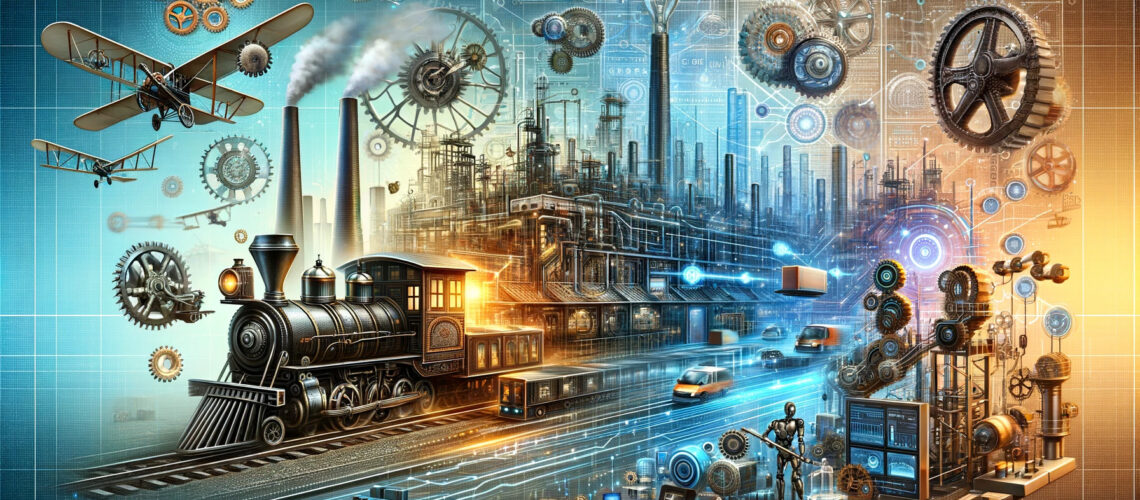The Industrial Revolution, a transformative period in human history, reshaped industries and economies worldwide. As we stand on the brink of another revolution, this time driven by Artificial Intelligence (AI), it’s crucial to reflect on the enduring lessons from that era. These insights can guide current leaders, like Kevin Brandes of Cargo Quotes, in navigating the complexities of modern supply chain management.
Embracing Change while Maintaining Human Focus
The Industrial Revolution taught us the power of embracing change. It demonstrated how technological advancements could drastically improve efficiency and output. However, it also highlighted the need to balance progress with the human aspect of industry. Today, as AI begins to play a larger role in supply chains, we must remember to keep the human element at the core of our operations. Technology should enhance, not replace, the human touch.
The Importance of Adaptability and Continuous Improvement
One key takeaway from the Industrial Revolution is the importance of adaptability. Industries that adapted quickly to new technologies and processes thrived, while those that resisted change found themselves lagging behind. This lesson is critical today as we integrate AI into supply chain management. Companies must be flexible and willing to continually improve and innovate, as Kevin Brandes exemplifies in his approach to logistics at Cargo Quotes.
Balancing Efficiency with Sustainability
The Industrial Revolution significantly increased production capabilities but often at the expense of the environment. Today, we face the challenge of balancing efficiency with sustainability. AI offers opportunities to optimize supply chains, reduce waste, and minimize environmental impact. As we harness AI’s potential, remembering the environmental lessons from the past is crucial.
The Need for Ethical Considerations
The Industrial Revolution also brought forth ethical challenges, particularly in labor practices. Similarly, the rise of AI presents new ethical considerations, especially regarding data privacy and employment. It’s essential that businesses employ AI responsibly, ensuring that ethical practices are upheld in this new technological landscape.
Investing in Education and Skills Development
The rapid industrialization highlighted the need for education and skill development. As AI transforms supply chains, there’s a similar need for upskilling workers to interact with new technologies. Investing in education and training ensures that employees are not left behind in this transition.
Keeping Up with Rapidly Changing Consumer Demands
The Industrial Revolution began the trend of rapidly changing consumer demands. This pace has only accelerated with time. AI enables businesses to better understand and respond to these changing needs. Keeping a pulse on consumer trends, as the industrialists did, remains a key strategy in the AI era.
Leveraging Data for Strategic Decisions
One of the most significant lessons from the Industrial Revolution is the use of information for strategic decision-making. Today, AI provides unparalleled access to data, offering insights that can revolutionize supply chain management. Companies can make more informed decisions, much like industrialists used information to optimize production and distribution.
Conclusion
The transition to an AI-driven future in supply chain management is an exciting yet challenging journey. The lessons from the Industrial Revolution – balancing technological advancement with human focus, adaptability, sustainability, ethical considerations, education, responding to consumer demands, and data-driven decision making – are more relevant than ever. Leaders like Kevin Brandes understand the importance of these lessons, ensuring that as we embrace the future, we do not forget the valuable insights of the past.

